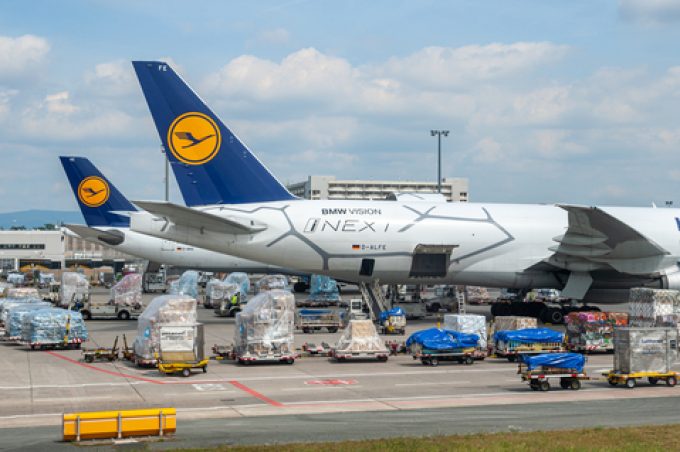MSC continues to expand fleet with vintage vessels as profits top scrap value
In its trawl for tonnage, MSC has been buying vintage containerships ripe for demolition as, ...
TFII: SOLID AS USUALMAERSK: WEAKENINGF: FALLING OFF A CLIFFAAPL: 'BOTTLENECK IN MAINLAND CHINA'AAPL: CHINA TRENDSDHL: GROWTH CAPEXR: ANOTHER SOLID DELIVERYMFT: HERE COMES THE FALLDSV: LOOK AT SCHENKER PERFORMANCEUPS: A WAVE OF DOWNGRADES DSV: BARGAIN BINKNX: EARNINGS OUTODFL: RISING AND FALLING AND THEN RISING
TFII: SOLID AS USUALMAERSK: WEAKENINGF: FALLING OFF A CLIFFAAPL: 'BOTTLENECK IN MAINLAND CHINA'AAPL: CHINA TRENDSDHL: GROWTH CAPEXR: ANOTHER SOLID DELIVERYMFT: HERE COMES THE FALLDSV: LOOK AT SCHENKER PERFORMANCEUPS: A WAVE OF DOWNGRADES DSV: BARGAIN BINKNX: EARNINGS OUTODFL: RISING AND FALLING AND THEN RISING

The air cargo industry has urged governments and stakeholders to prepare for what is expected to be a highly challenging air freight peak season.
The International Air Cargo Association (Tiaca) said yesterday that the industry is facing “unprecedented challenges” in the fourth quarter, with demand easily outstripping supply.
Noting that port congestion, delays and the rising costs of sea freight are sending desperate shippers to air freight, Tiaca said that combined with online shopping events, as well as the traditional peak, “the stress on the system is expected to grow substantially”.
It urged the industry to prepare, especially in the face of Covid-related restrictions on workforces, particularly in Asia.
“Such restrictions are causing cargo to be disbursed across neighbouring countries and airports, causing further challenges. Shippers are therefore encouraged to work with forwarder partners to secure required capacity as early in the cycle as possible.”
Whether there is any capacity available remains a moot point. Atlas Air, for example, in its latest earnings call said it was reserving 5% of capacity for the spot market. Others said companies would have to be creative to get capacity.
Steve Manser, charter expert at Hunt & Palmer, said: “Charter rates are through the roof and capacity at a premium – you need to be resourceful to find solutions for customers including passenger freighter capacity – the team at Hunt & Palmer are pulling rabbits out of hats for our customers.”
One consultant said rates would be “erratic” over the next two months, with rates out of China to the UK, for example, more than tripling in the past month to more than $9 per kg, while another cited $15 per kg out of Hong Kong. One source said a carrier is charging some $25,000 per hour for a 747 freighter.
Tiaca not only urged air cargo’s customers to plan as early as possible, but also tasked governments with helping relieve the situation.
“Governments are urged to fast-track ad hoc charter permits and consider supporting seventh freedom regimes where they are being implemented.
“States are also urged to work with industry representatives to identify in advance potential system blockages in order for them to be addressed before they further impact supply chains. Supply chain disruptions are already being experienced in certain markets and the situation is projected to worsen.”
Rising passenger numbers have meant that some of the passenger freighter capacity has left the market, but much of that is now on domestic or tourist routes, minimising belly usage.
Tiaca said the industry needed to act too, and “adopt efficiency tools such as enhanced data sharing as a matter of urgency”.
“Contingency plans must be established to deal with all eventualities that may arise. The key to success is planning and communication.”
Steven Polmans, Tiaca chair, said: “Planning must start now. Resourcing and capacity will be issues, handling and facility space will be an issue, delivery and drivers will be an issue. We should be proud of the innovative, agile and flexible approaches adopted by the industry these past 18 months and now we must equally rise proactively to these new challenges as the weight of customer expectations mount.”
Comment on this article